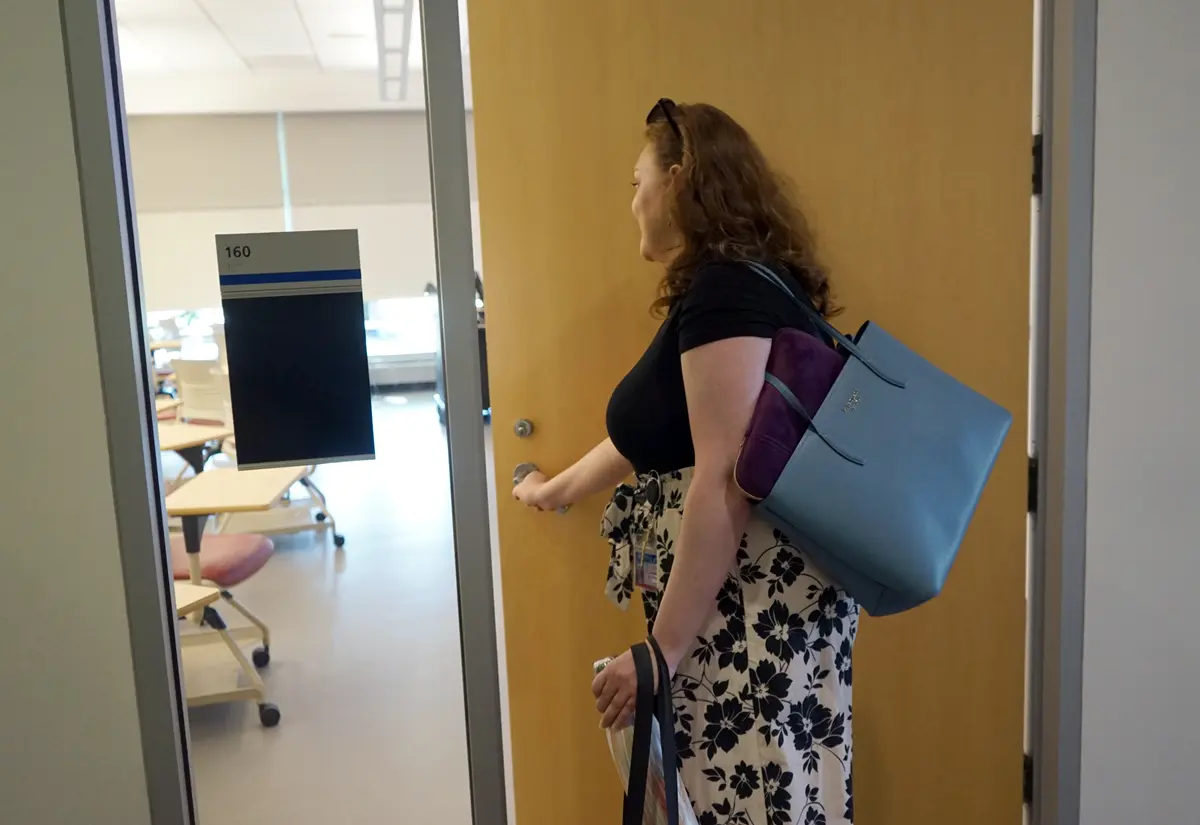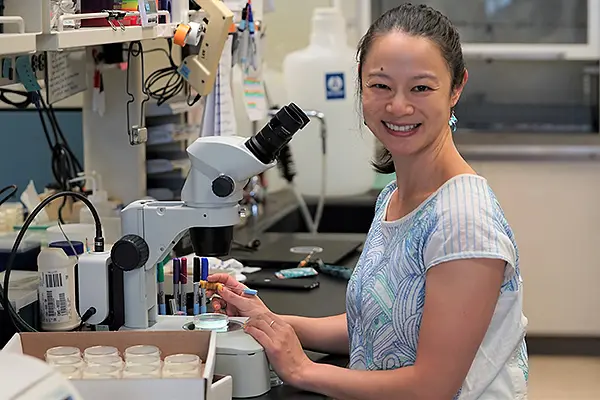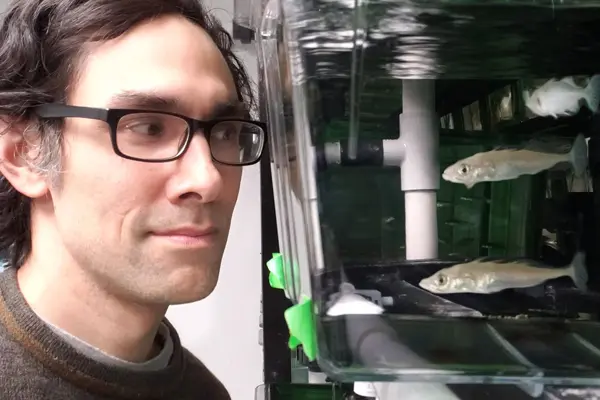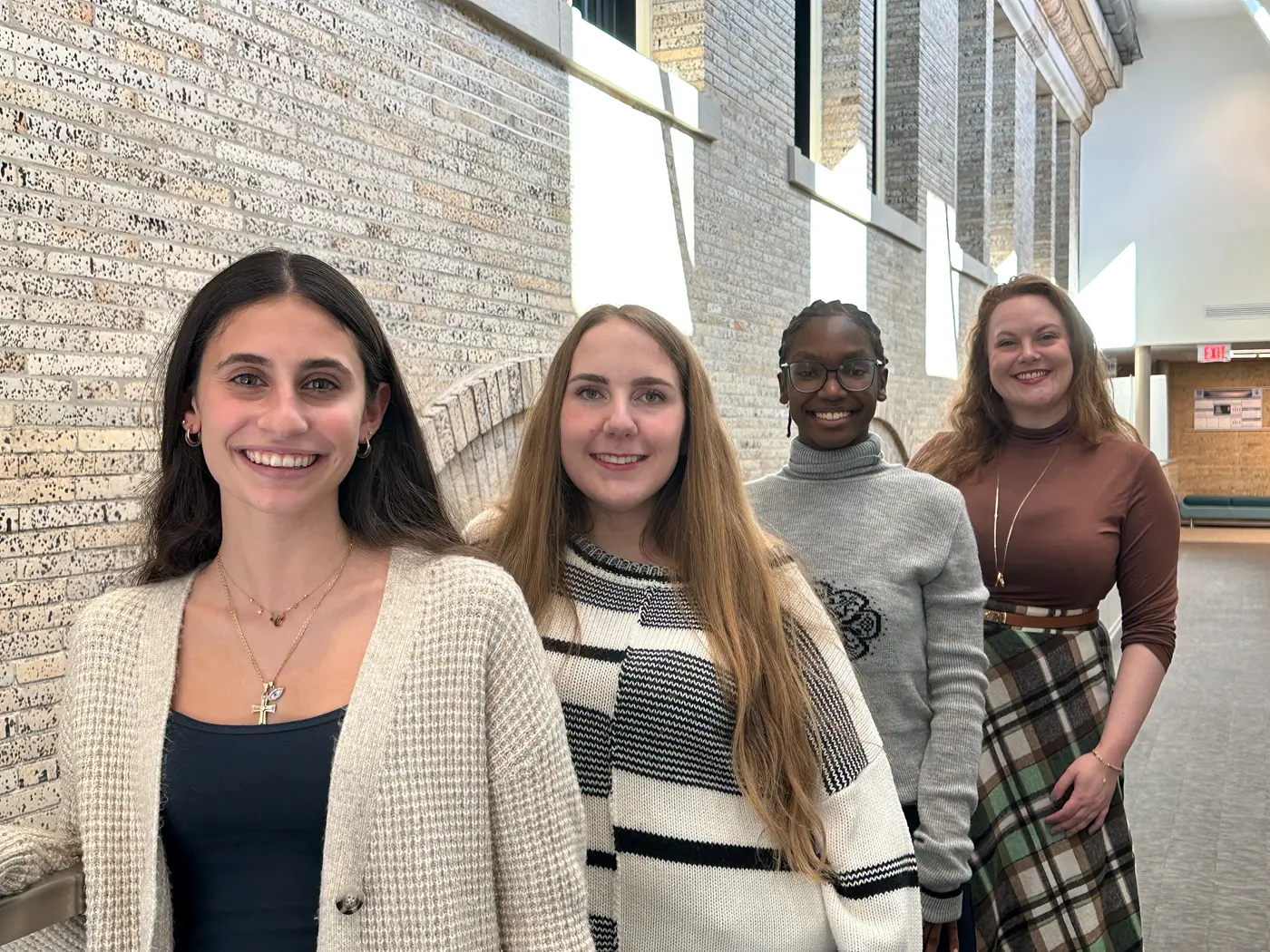 Image by K. Webster
Image by K. Webster
Assistant Psychology Professor Sarah Merrill, back right, with members of her research team, from left: Christina Grillakis '25, Ella DeStephano and Ashley Laleau.
Psychology Assistant Professor Sarah Merrill studies the chemical tags that trauma and other adverse experiences can leave on children’s genes – and whether interventions can buffer the effects of stress.
Merrill does research in the emerging and rapidly expanding field of epigenetics, the biochemical process that can impact when different genes are activated and how DNA is affected by physical, emotional and environmental events and stresses. Some epigenetic changes can be long-lasting and even persist throughout life.
“DNA is the script; it doesn’t change,” Merrill says, using a common analogy to actors rehearsing a play. “Epigenetics is the director’s note that guides how each line is expressed.”
Much epigenetic research has focused on adults, examining genes associated with diseases of aging. In 2013, researchers developed a tool known as the “epigenetic clock” – a way of calculating a person’s “genetic age” by looking at the rate of molecular-level change on a range of genes.
Merrill looks at the same change – known as DNA methylation – in children, who are more complex to evaluate.
“In adults, faster epigenetic aging is always worse, slower is always better,” she says. “In children, we’re not necessarily trying to reverse epigenetic aging; we’re just trying to prevent acceleration because you want them to be aging cellularly at the same rate that they’re aging chronologically. Being slow to develop or fast to develop are both risk factors in kids.”
Merrill, whose research has been funded by the National Science Foundation, the National Institutes of Health, the Canadian Institutes of Health Research and the Novo Nordisk Foundation, is also trying to develop more reliable tools for measuring epigenetic changes in children, who are studied less than adults.
Working with researchers in Canada, Jordan and the United States, Merrill has found positive genetic effects on children from interventions that are already known to improve parent-child relationships psychologically.
These include trainings designed to improve parenting skills and strengthen children’s relationships with their primary caregivers. In Jordan, programs for war-traumatized Syrian refugees that involve teens or parents and younger children reading certain books together have also shown positive effects.
Normalizing the rate of genetic aging in children who have experienced trauma can have important physical and psychological health benefits, Merrill says.
“Accelerated DNA methylation is associated with asthma, atopic dermatitis and other chronic immune events that you see in early life,” she says.
Merrill points out that not all epigenetic changes are negative; many help people adapt to a particular psychosocial or physical environment. However, when the person’s circumstances become different, those changes may become problematic.
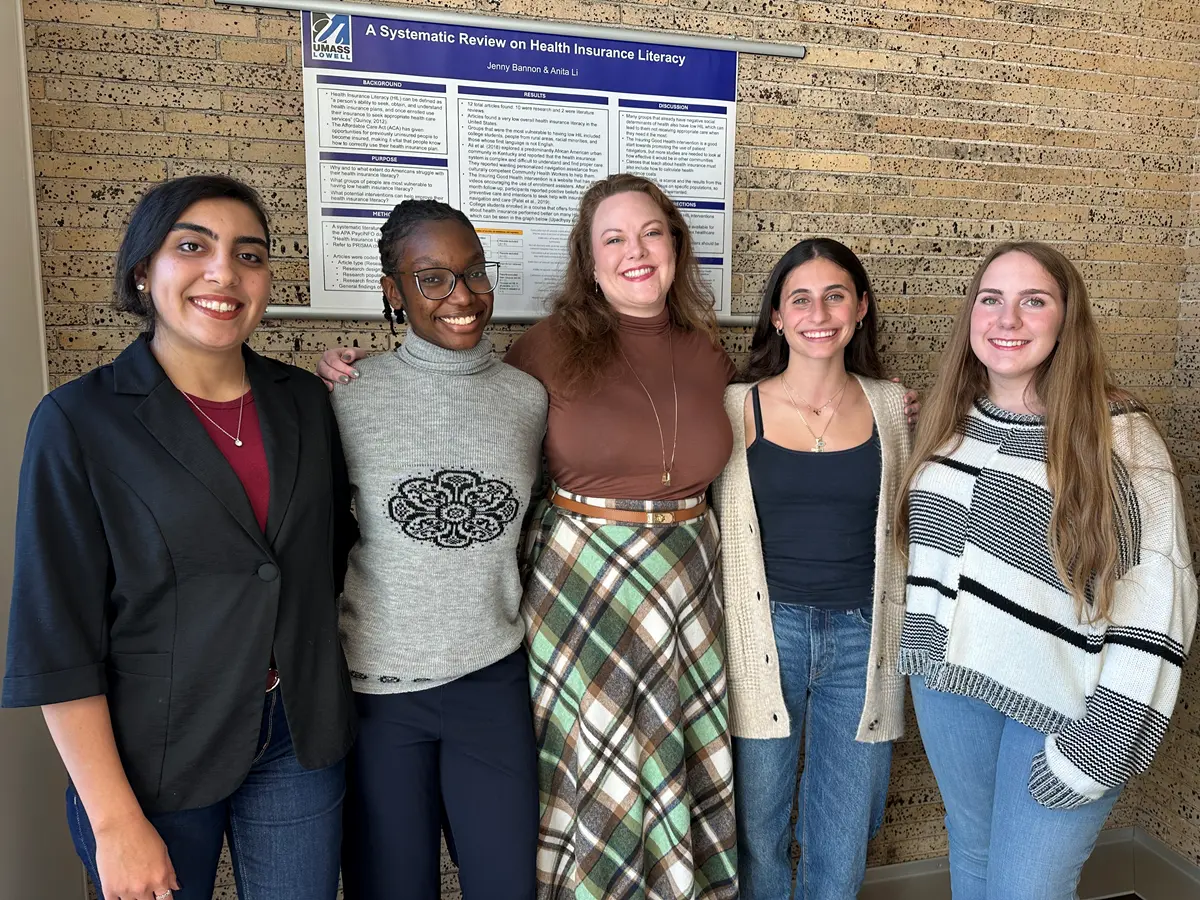 Image by K. Webster
Image by K. Webster
Merrill, center, with members of her research team and doctoral student and teaching assistant Hourieh Hayati, far left.
In one example, Ella DeStephano, a senior psychology major from Newbern, North Carolina, is finishing up a research paper with Merrill that analyzes epigenetic changes in babies who fear their caregivers, based on a long-term Canadian study that tests infants’ DNA at 3 months of age and their attachment style at 1 year old.
They are then comparing those epigenetic changes to similar changes in 18-year-olds in a different, long-running study in Wisconsin, to see whether they correlate with later behavior patterns.
DeStephano, who is applying to graduate schools and planning on a career in research, says working with Merrill was a fantastic first research experience.
“I’ve been interested in psychology since an early age and also super-interested in genetics since middle school, so her lab was where everything came together,” she says.
Although Merrill is only starting her second year at UMass Lowell, she already has two other undergraduates and a recent graduate working in her lab, and she is looking for a doctoral student.
Christina Grillakis ’25, who interned with Merrill last year and is now applying to doctoral programs in clinical psychology, is finishing a paper analyzing existing research on epigenetic tags in first responders with post-traumatic stress disorder (PTSD).
“I come from a family who either served in the United States military or the Greek military, so first responders and veterans have always been what I wanted to focus on,” Grillakis says. “A lot of times, you do what the professor wants to do. Professor Merrill gave me the opportunity to do research that I’m completely interested in.”

